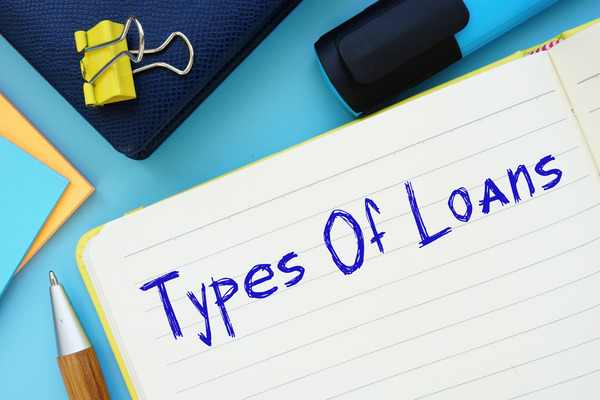In times of financial strain or emergencies, individuals may turn to payday loans as a short-term solution to cover immediate expenses. While payday loans can provide quick access to cash, they often come with high fees and interest rates, making them a risky option for borrowers. This article aims to provide a comprehensive overview of payday loans, including their features, risks, and alternatives, to help individuals make informed decisions about their financial well-being.
What are Payday Loans?
Payday loans, also known as cash advances, paycheck advances, or deferred deposit loans, are short-term loans typically due on the borrower’s next payday. These loans are intended to provide quick access to funds to cover unexpected expenses or financial emergencies, such as medical bills, car repairs, or utility bills. Payday loans are usually small-dollar loans, ranging from a few hundred to a few thousand dollars, and are often repaid in a single lump sum payment.
How Payday Loans Work
To obtain a payday loan, borrowers typically need to provide proof of income, such as a paycheck stub or bank statement, and a valid form of identification. They then write a postdated check to the lender for the loan amount plus fees or authorize the lender to electronically debit their bank account on the due date. The lender provides the borrower with the loan amount, minus fees, which is usually due within two to four weeks, or on the borrower’s next payday.
Features of Payday Loans
- High Fees and Interest Rates: Payday loans often come with high fees and annual percentage rates (APRs), making them an expensive form of borrowing. The fees and interest rates on payday loans can translate to triple-digit APRs, far higher than those of traditional loans or credit cards.
- Short-Term Repayment Period: Payday loans are designed to be repaid quickly, typically within two to four weeks. Borrowers who are unable to repay the loan in full by the due date may be subject to additional fees and interest charges or may roll over the loan into a new loan, accruing further costs.
- No Credit Check: Payday lenders typically do not require a credit check to approve a loan. Instead, they rely on the borrower’s income and ability to repay the loan in determining eligibility. This makes payday loans accessible to borrowers with poor credit or no credit history.
- Automatic Repayment: Many payday lenders require borrowers to authorize automatic repayment of the loan through electronic debit from their bank account on the due date. This can lead to overdraft fees or insufficient funds charges if the borrower’s account does not have enough funds to cover the repayment.
Risks of Payday Loans
While payday loans can provide quick access to cash, they also carry significant risks for borrowers, including:
- Debt Trap: The high fees and interest rates associated with payday loans can trap borrowers in a cycle of debt, making it difficult to repay the loan in full. Borrowers who are unable to repay the loan on time may roll over the loan into a new loan, incurring additional fees and interest charges.
- Financial Instability: Relying on payday loans to cover expenses can lead to financial instability and hardship for borrowers. The high cost of borrowing can drain resources and leave borrowers with less money to meet essential needs such as food, housing, and healthcare.
- Credit Score Impact: Defaulting on a payday loan or rolling over the loan into a new loan can negatively impact the borrower’s credit score. Payday loans typically do not report to credit bureaus when payments are made on time, but they may report delinquent accounts or collections to credit agencies.
- Legal and Regulatory Issues: Payday lending is subject to regulations and laws that vary by state. Some states have implemented restrictions on payday loans, such as caps on fees and interest rates or limits on loan amounts and rollovers. Borrowers should be aware of the laws and regulations governing payday lending in their state.
Alternatives to Payday Loans
While payday loans may provide quick cash in emergencies, there are alternative options that may be more affordable and less risky for borrowers, including:
- Personal Loans: Personal loans from banks, credit unions, or online lenders typically offer lower interest rates and longer repayment terms than payday loans. Borrowers with good credit may qualify for competitive rates and flexible terms.
- Credit Cards: Credit cards can be used to cover unexpected expenses or emergencies and offer the flexibility of making payments over time. Borrowers should compare credit card terms and fees to ensure they choose a card with favorable terms.
- Emergency Savings: Building an emergency savings fund can provide a financial safety net for unexpected expenses or emergencies. Even small contributions to a savings account each month can add up over time and provide peace of mind in times of need.
- Financial Assistance Programs: Some community organizations, nonprofits, and government agencies offer financial assistance programs or emergency relief funds to help individuals and families facing financial hardship. These programs may provide grants, low-interest loans, or other forms of assistance to eligible individuals.
Conclusion
While payday loans may provide quick access to cash in emergencies, they also come with significant risks and high costs for borrowers. Before taking out a payday loan, individuals should carefully consider the alternatives and weigh the potential consequences of borrowing. Building an emergency savings fund, exploring alternative lending options, and seeking financial assistance from community resources can help individuals manage unexpected expenses without resorting to payday loans. By understanding the risks and exploring alternative options, individuals can make informed decisions about their financial well-being and avoid the pitfalls of payday lending.
